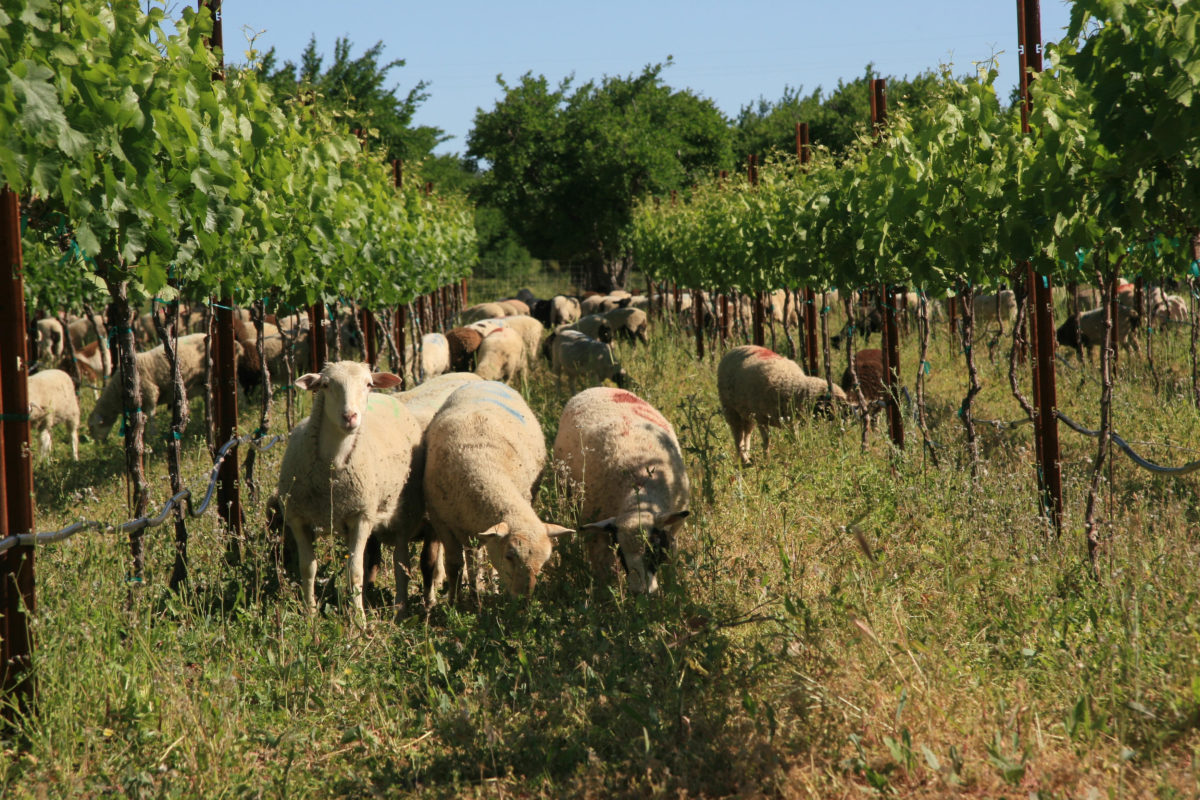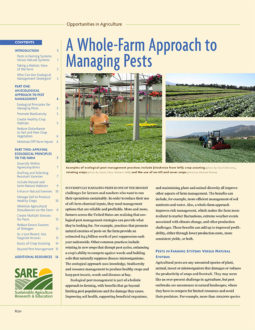A flock of sheep is vital to the success of one particular vineyard in Winters, California. While many operations struggle to manage weeds, this vineyard used a SARE-funded grant to test grazing sheep as a pest management practice, and they are seeing many whole-farm benefits. The sheep were trained to avoid the grape crop’s leaves and to instead graze only on weeds and other cover crops. Rather than apply potentially harmful pesticides or do time-intensive mowing, the vineyard uses the sheep to manage its weeds. Producers using methods based on ecology to manage pests, like sheep grazing weeds in vineyards, are finding improvements and benefits across their farms. SARE's newly revised A Whole-Farm Approach to Managing Pests bulletin discusses ecological approaches to pest management and highlights cases in which farmers are using innovative methods to manage pests.
A Whole-Farm Approach to Managing Pests is available for free in print and for download, and is useful to farmers and educators alike.

A Whole-Farm Approach to Managing Pests describes ecological pest management strategies that focus on strengthening natural relationships throughout the farm to reduce pest pressures. These holistic strategies emphasize knowledge of cropping systems, biodiversity and farm resource management. Practices that produce healthy crops and keep insects, weeds and diseases away focus on:
- promoting biodiversity
- creating healthy crop habitat
- reducing disturbance to soil and non-crop vegetation , and
- minimizing off-farm inputs.
This newly updated technical bulletin is broken down into two parts. Part one examines how biodiversity and biological control drive management practices that can boost the natural defenses of your farm. The second part puts those tools into practice by providing reliable and profitable strategies to successfully manage pests.
Focusing on the farming system rather than on each individual pest can make pest control across the whole farm more effective and sustainable. Ecological strategies can be adopted incrementally to meet the unique pest management needs of every operation while providing other benefits such as improved soil health and biodiversity maintenance.
Download or order your free print copy of A Whole-Farm Approach to Managing Pests at https://www.sare.org/resources/a-whole-farm-approach-to-managing-pests/ or by calling (301) 779-1007. A Whole-Farm Approach to Managing Pests is available in quantity for free to educators for use in educational workshops, classes or tours.
